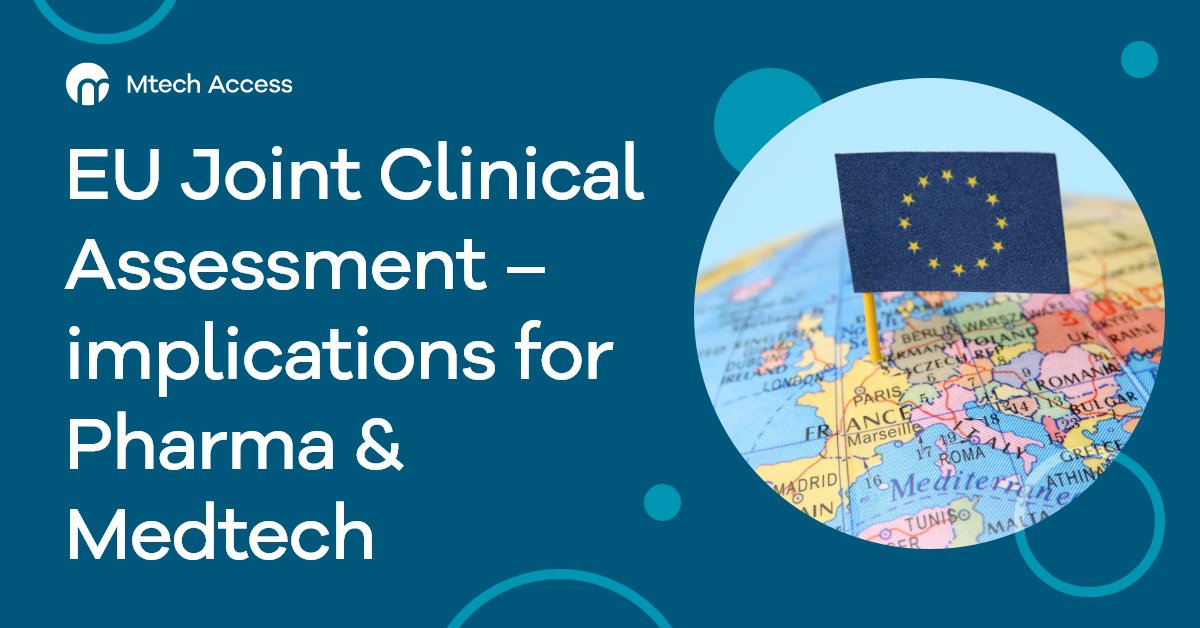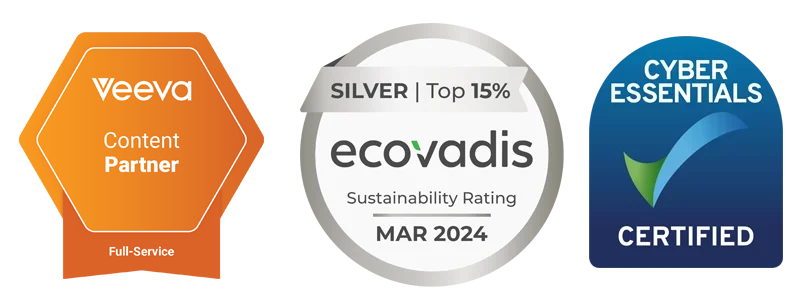
Maria Dimitrova (Consultant – HTA) and Samantha Gillard (Director – HTA) provide an overview of the EU Joint Clinical Assessment (JCA) and what it means for Pharma and Medical Device manufacturers launching new technologies from 2025.
Jump to:
- What is the EU JCA?
- When will JCA be a requirement?
- Who conducts and assesses the JCA?
- Will the JCA replace local HTA?
- JCA methods and guidelines
- The JCA scoping process
- Four key considerations for Pharma and Medtech
- How can Mtech Access provide support?
What is the EU JCA?
In January 2022, the European Parliament enacted a new EU Health Technology Assessment (HTA) Regulation, with the aim of standardising clinical assessment of medicines and high-risk medical devices across the EU and avoiding duplication of work.
Currently, Pharma and Medtech manufacturers have to submit evidence individually in each of the 27 EU markets; the intention of the JCA is that at least some of the assessment can be done centrally.
The JCA report will act as a universal information source for relative treatment effects, safety, and other clinical parameters agreed in the scoping process. The report will also cover the clinical area addressed by the technology and its technical characteristics.
The introduction of the JCA should also benefit smaller markets, which may not have the required capacity or expertise to conduct assessments independently.
When will the JCA be a requirement?
The JCA will be rolled out in stages. New cancer medicines and advanced therapy medicinal products (ATMP) will require a JCA from 12th January 2025. Orphan medicines will require assessment at EU level from 13th January 2028. Finally, all other new medicines launching in the EU will need a JCA from 13th January 2030.
Who conducts and assesses the JCA?
The Member State Coordination group on HTA (the Coordination group) was established in March 2022. All 27 EU members were invited to appoint representatives by April 2023.
The Coordination group comprises four subgroups, with two (Joint Clinical Assessment and Joint Scientific Consultations) directly responsible for the delivery of JCA reports. One subgroup will be responsible for the identification of emerging health technologies, and another will focus on methodology.
For each technology requiring assessment, the JCA group will appoint an assessor and co-assessor from among the different member states, who will be responsible for assessing the manufacturer’s dossier and producing the JCA report. The report will then be made available to member states on an IT platform.
Will the JCA replace local HTA?
The JCA is not a full HTA and is focused only on clinical evidence. It is not an appraisal, and local agencies reserve the right to draw their own conclusions on relative efficacy and safety.
Whilst all member states will be required to give each JCA “due consideration”, each state will be able to request additional information relevant to their market. Cost-effectiveness and reimbursement decisions will be made at national level.
JCA methods and guidelines
The voluntary EU HTA cooperation, EUNetHTA21, have been contracted to develop guidance documents to support the EU HTA Regulation.
EUNetHTA21 have developed HTA methodological guidelines, including guidance on scoping, evidence synthesis, endpoints, validity of studies, etc. Whilst these guidelines are written for the assessors and co-assessors, Pharmaceutical and Medtech companies can also learn from the information provided.
Additionally, JCA and JCS guidance and stakeholder interaction guidance were also recently published.
JCA guidelines include:
- JCA submission dossier guidance and template
- JCA assessment report guidance and template
- JCA procedural guideline for appointing assessors and co-assessors
- Production of JCA on medical products and medical devices
Earlier this year (June 2023), EUNetHTA21 published its first EU JCA report.
The JCA scoping process
For each JCA there will be a scoping process where each member state will have the opportunity to put forward their requirements. Each of the 27 EU member states will be required to fill out a PICO (population, intervention, comparators, outcomes) survey, to allow them to identify national needs. Following the survey, the JCA assessor and co-assessor will consolidate all PICOs, which will be validated by EU patients and clinical experts and the Committee for Scientific Consistency and Quality (CSCQ). The finalised PICOs will be communicated to Pharmaceutical and Medtech manufacturers approximately 3 months prior to dossier submission, which should be 45 days before the expected Committee for Medical Products for Human Use (CHMP) opinion.
Manufacturers must then complete their JCA dossier using all available clinical evidence to address the consolidated PICOs. It is expected that extensive evidence synthesis will be required to accommodate the potentially diverse PICOs.
Four key considerations for Pharma and Medtech
Manufacturers can expect to face various challenges throughout the JCA process, including:
1. Different national requirements
EU member states will be able to request additional information, such as cost-effectiveness evidence, during the JCA process. However, additional clinical information will still be required at national level which is where reimbursement decisions will be made. Individual member states may also be able to request the same evidence as at EU level, but conduct different analyses.
2. Risk of needing to repeat submission following CHMP opinion
JCA dossier submission must be made prior to CHMP opinion. However, the PICOs may change following CHMP opinion (e.g. if the indicated population is restricted), meaning that the whole JCA process could need to be repeated.
3. Potential for an unmanageable number of PICOs
Even though PICOs at national level will be consolidated, there is no cap on the number of consolidated final PICOs. The definition of standard of care and patient populations are likely to vary across member states and so there is a risk of an unmanageable workload for manufacturers.
4. Limited contact with assessors
Manufacturers will have limited input into the JCA process. As the JCA is not an appraisal, and reimbursement decisions won’t be made, it is understood that the EU assessor and co-assessor’s contact with manufacturers will be limited to requesting clinical evidence if missing from the JCA submission dossier.
Despite the intention to avoid duplication of efforts, the four challenges above are likely to increase the workload for manufacturers.
How can Mtech Access provide support?
We can help Pharma and Medtech companies with strategic considerations, evidence synthesis, and dossier development for future JCA submissions.
We are HTA experts and our team have collectively completed more than 170 HTA submissions with a 100% success rate in oncology and rare diseases. We work closely with our clients, becoming an extension of their teams, to ensure the value of their products is appropriately communicated. We provide continuous strategic support throughout to maximise the chances of successful reimbursement, whilst project timelines are closely monitored for timely delivery.
At Mtech Access, we have specialist teams of systematic reviewers and statisticians who consistently deliver evidence synthesis according to the most robust standards, across all disease areas. Several of our evidence team were previously members of an evidence assessment group for NICE and use this experience to ensure that our systematic reviews adhere to HTA requirements and are of the highest quality. In addition, our large in-house team of specialist medical writers are experienced in writing reimbursement and HTA submission dossiers. All our submissions undergo a thorough proofing process, offering quality assurance.
Please email info@mtechaccess.co.uk or complete the form below to discuss how we can support you with your JCA dossier.


